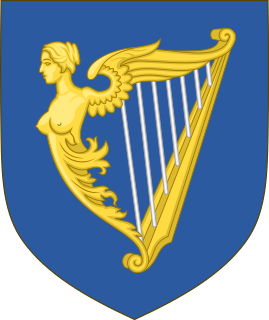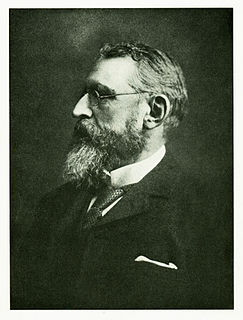Related Research Articles
The electoral threshold, or election threshold, is the minimum share of the primary vote which a candidate or political party requires to achieve before they become entitled to any representation in a legislature. This limit can operate in various ways. For example, in party-list proportional representation systems an electoral threshold requires that a party must receive a specified minimum percentage of votes, either nationally or in a particular electoral district, to obtain any seats in the legislature. In multi-member constituencies using preferential voting, besides the electoral threshold, to be awarded a seat, a candidate is also required to achieve a quota, either on the primary vote or after distribution of preferences, which depends on the number of members to be returned from a constituency.
Electoral fusion is an arrangement where two or more political parties on a ballot list the same candidate, pooling the votes for that candidate. It is distinct from the process of electoral alliances in that the political parties remain separately listed on the ballot. The practice of electoral fusion in jurisdictions where it exists allows minor parties to influence election results and policy by offering to endorse or nominate a major party's candidate.
Primary elections, often abbreviated to primaries, are a process by which voters can indicate their preference for their party's candidate, or a candidate in general, in an upcoming general election, local election, or by-election. Depending on the country and administrative divisions within the country, voters might consist of the general public in what is called an open primary, or solely the members of a political party in what is called a closed primary. In addition to these, there are other variants on primaries that are used by many countries holding elections throughout the world.
The Labour Party is a social democratic political party in the Republic of Ireland. Founded on 28 May 1912 in Clonmel, County Tipperary, by James Connolly, Jim Larkin and William O'Brien as the political wing of the Irish Trades Union Congress, it describes itself as a "democratic socialist party" in its constitution. Labour continues to be the political arm of the Irish trade union and labour movement and seeks to represent workers' interests in the Dáil and on a local level.

The Irish Parliamentary Party was formed in 1874 by Isaac Butt, the leader of the Nationalist Party, replacing the Home Rule League, as official parliamentary party for Irish nationalist Members of Parliament (MPs) elected to the House of Commons at Westminster within the United Kingdom of Great Britain and Ireland up until 1918. Its central objectives were legislative independence for Ireland and land reform. Its constitutional movement was instrumental in laying the groundwork for Irish self-government through three Irish Home Rule bills.
Nonpartisan democracy is a system of representative government or organization such that universal and periodic elections take place without reference to political parties. Sometimes electioneering and even speaking about candidates may be discouraged, so as not to prejudice others' decisions or create a contentious atmosphere.
There have been various groups in Canada that have nominated candidates under the label Labour Party or Independent Labour Party or other variations from the 1870s until the 1960s. These were usually local or provincial groups using the Labour Party or Independent Labour Party name, backed by local labour councils or individual trade unions. There was an attempt to create a national Canadian Labour Party in the late 1910s and in the 1920s, but these were only partly successful.

The first modern Farmer–Labor Party in the United States emerged in Minnesota in 1918. Economic dislocation caused by American entry into World War I put agricultural prices and workers' wages into imbalance with rapidly escalating retail prices during the war years, and farmers and workers sought to make common cause in the political sphere to redress their grievances.
Clann na Talmhan was an Irish agrarian political party active between 1939 and 1965.

Daniel Desmond Sheehan, usually known as D. D. Sheehan was an Irish nationalist, politician, labour leader, journalist, barrister and author. He served as Member of Parliament (MP) in the House of Commons of the United Kingdom of Great Britain and Ireland representing Mid-Cork from 1901 to 1918, a constituency comprising the districts of Ahadallane, Ballincollig, Ballyvourney, Blarney, Coachford, Farran, Inchigeelagh, Macroom, Millstreet and Shandangan. As co-founder and President of the Irish Land and Labour Association, he was credited with considerable success in land reform, labour reforms and in rural state housing. From 1909, he was General Secretary of the Central Executive of the All-for-Ireland League, favouring a policy of National reconciliation between all creeds and classes in Ireland. During World War I he served as Irish regiments officer with the 16th (Irish) Division in France, 1915–16. He resigned his parliamentary seat in 1918 and lived in England for several years, returning to Dublin following the ending of the civil war, when he was appointed editor of the Dublin Chronicle.

The United Irish League (UIL) was a nationalist political party in Ireland, launched 23 January 1898 with the motto "The Land for the People". Its objective to be achieved through agrarian agitation and land reform, compelling larger grazier farmers to surrender their lands for redistribution among the small tenant farmers. Founded and initiated at Westport, County Mayo by William O'Brien, it was supported by Michael Davitt MP, John Dillon MP, who worded its constitution, Timothy Harrington MP, John O'Connor Power MP and the Catholic clergy of the district. By 1900 it had expanded to be represented by 462 branches in twenty-five counties.

Minnesota is known for a politically active citizenry, with populism being a longstanding force among the state's political parties. Minnesota has consistently high voter turnout; in the 2008 U.S. presidential election, 77.8% of eligible Minnesotans voted – the highest percentage of any U.S. state or territory – versus the national average of 61.7%. This was due in part to its same day voter registration laws; previously unregistered voters can register on election day, at their polls, with evidence of residency.
The Nationalist Party was the continuation of the Irish Parliamentary Party (IPP), and was formed after the partition of Ireland, by the Northern Ireland-based members of the IPP.

Cork Mid, North, South, South East and West was a parliamentary constituency represented in Dáil Éireann, the lower house of the Irish parliament or Oireachtas from 1921 to 1923. The constituency elected 8 deputies to the Dáil, using the single transferable vote form of proportional representation (PR-STV).
A minor party is a political party that plays a smaller role than a major party in a country's politics and elections. The difference between minor and major parties can be so great that the membership total, donations, and the candidates that they are able to produce or attract are very distinct. Some of the minor parties play almost no role in a country's politics because of their low recognition, vote and donations. Minor parties often receive very small numbers of votes at an election. The method of voting can also assist or hinder a minor party's chances. For example, in an election for more than one member, the proportional representation method of voting can be advantageous to a minor party as can preference allocation from one or both of the major parties.

The National Party is a minor far-right nationalist political party in Ireland. The party was founded in November 2016 and has no elected representatives.
Unbought Tenants' Association and Unpurchased Tenants' Association were labels for agrarian pressure groups in Ireland in the 1910s and 1920s. Under the Irish Land Acts, most farmers in the preceding decades had bought the freehold to their farms; the Association represented the interests of remaining tenant farmers.

The 1924 United States presidential election in Illinois took place on November 4, 1924, as part of the 1924 United States presidential election. State voters chose 29 representatives, or electors, to the Electoral College, who voted for president and vice president.
References
- 1 2 3 John Coakley, "Minor Parties in Irish Political Life, 1922-1989", The Economic and Social Review, vol.21, no.3, pp.269-297
- 1 2 Peter Barberis et al, Encyclopedia of British and Irish Political Organizations, p.234
- ↑ "Latest list of candidates", Irish Times , 14 August 1923
- ↑ "General election - full list of nominations", Irish Times , 20 August 1923